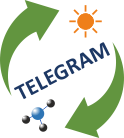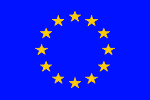Forschungszentrum Jülich focuses on use-inspired, basic research. It rises to the challenges of the present and does research for a future worth living. As a member of the Helmholtz Association, Forschungszentrum Jülich is among the major interdisciplinary research centres in Europe.
The Institute of Energy and Climate Research 5 – Photovoltaic (IEK-5) focusses on researching new materials and innovative device architectures for sustainable photovoltaics based on thin films. The IEK-5 deals with the fundamental physics of partly disordered materials used in solar cells. These can be amorphous or microcrystalline silicon and its alloys, organic or hybrid (organic-inorganic) materials or various functional oxides. In addition, components and devices for new applications such as passivation and contact layers for high efficiency silicon heterojunction solar cells or multijunction solar cells for efficient water splitting are developed. At the same time, the IEK-5 develops the technology to fabricate solar cells with a particular focus on the industrial application and on issues of scaling up the technology. A central requirement for the successful development of materials, devices and production technology is an extensive set of characterization methods and simulation capabilities that are used to analyze the optoelectronic properties of thin-film materials and related devices. These activities include all relevant length scales from atomistic resolution of nanostructures and elementary processes up to the yield analysis of modules or photovoltaic systems.
The Institute of Energy and Climate research 14 – Electrochemical Process Engineering (IEK-14) is developing conversion technologies for a sustainable energy future. The transition to a sustainable energy system requires the deployment of new, efficient technologies for the conversion of greenhouse-gas-free secondary energy carriers produced from renewable energy sources. IEK-14 has been newly formed from the long-established IEK-3 and, with more than 20 years of experience in electrochemical energy conversion, is at the forefront of these efforts. In collaboration with national and international partners from research and industry, we develop solutions for mobile, portable, and stationary applications, and conduct research into using liquid energy carriers as fuels as well as producing and using them in an efficient, environmentally compatible manner. In addition, we work on groundbreaking innovations for electrochemical conversion systems for the direct generation of hydrogen, syngas, and power by means of electrolysis, co-electrolysis, and fuel cells.
ROLE IN TELEGRAM
FZJ leads WP4, setting up test facilities for ammonia generation and will operate them in order to characterize the catalysts and to understand the interaction between cells providing feed gases and the ammonia generating cell.
FZJ will convert the catalysts from UU and CNR (WP2) to membrane electrode assemblies with the best possible performance for ammonia generation .
FZJ also leads WP6, will carry out long-term studies of the reactor when fed with renewable energies and of the DAFC under fluctuating load. Moreover, FZJ will set up the demonstrator of the full ammonia cycle, powered by renewable energy sources (WP6).
WP4 Leader
Dr. Andreas Gluesen
WP6 Leader
Dr. Stefan Haas









 Visit Today : 8
Visit Today : 8 Total Visit : 156087
Total Visit : 156087 Who's Online : 2
Who's Online : 2